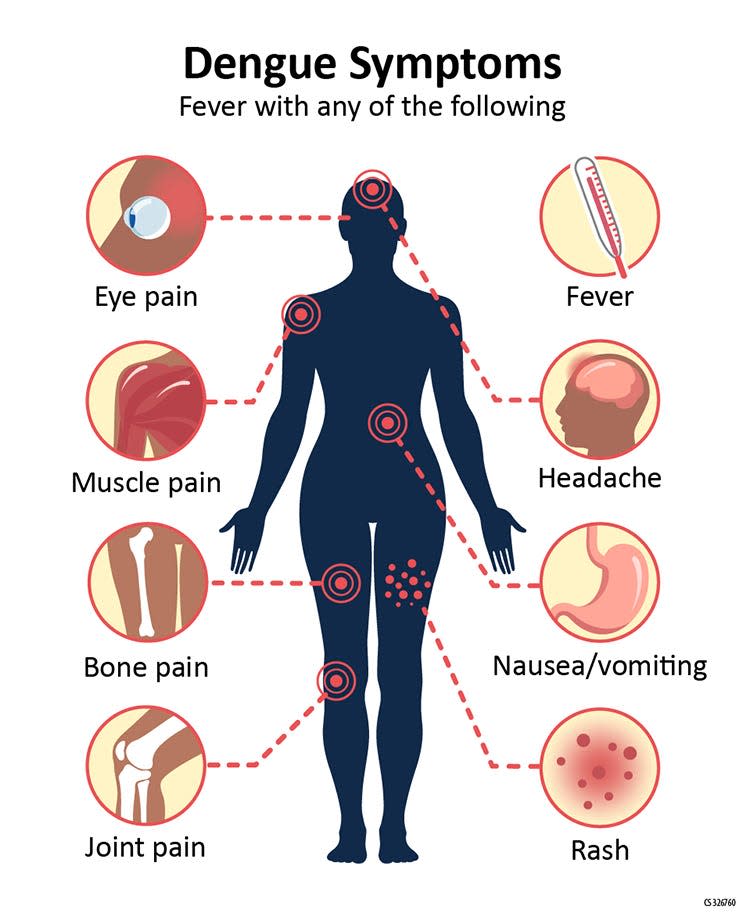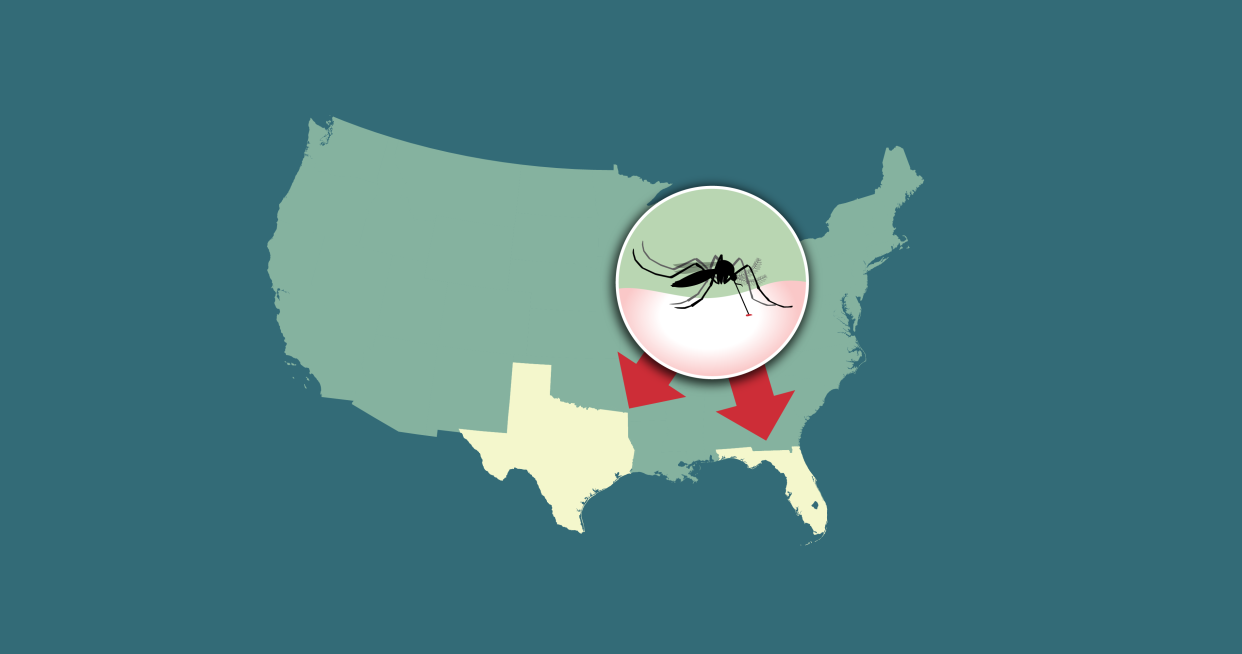Dengue fever vs. malaria. What to know about the mosquito-borne diseases reported in Florida
Florida health officials are now issuing warnings for a rise in cases of dengue fever in South Florida.
Eleven locally-acquired cases of the disease have been found in Broward County and Miami-Dade County so far this year.
However, that's not the only mosquito-borne illness Floridians have seen on the rise this summer. Sarasota County saw an outbreak of malaria back in June with seven cases. How do the two diseases compare to one another?
Dengue in Florida: Dengue fever in Florida on the rise. As virus cases grow, here's how to spot symptoms
What is Malaria? What is Dengue Fever?
Malaria is a disease transmitted through the bite of an infective female anopheline mosquito that can rapidly become very severe and life-threatening, according to the Centers for Disease Control.
Dengue is a mosquito-borne disease that is caused by the bite of the Aedes mosquito and the four related viruses called DEN-1, DEN-2, DEN-3, and DEN-4. These viruses are related to the viruses that cause West Nile and yellow fever, according to the Florida Department of Health.
What are the symptoms of Dengue Fever and Malaria?
The two diseases can have symptoms, such as:
Headaches
Fever and flu-like illness
Vomiting
Generalized weakness
Intense muscle pain
Lower back pain
Additionally, malaria may cause severe symptoms such as anemia, feeling full without eating, and jaundice, which is the yellow coloring of the skin and eyes. Symptoms usually appear within seven to 30 days but can take up to one year to develop.
Dengue fever may cause belly pain or tenderness, repeated vomiting, nose or gum bleeding, vomiting blood, blood in the stool, or being tired, restless, or irritable. If symptoms do occur, they become apparent within four to 10 days after infection.

Are Malaria and Dengue Fever contagious?
No.
Malaria is not spread from person to person, and it cannot be sexually transmitted, according to the Centers for Disease Control. You cannot get malaria from casual contact with malaria-infected people.
While rare, transfusion-transmitted malaria does happen and when it does, it is a potentially severe complication in blood recipients. On average, only one case of transfusion-transmitted malaria occurs in the United States every two years, the CDC said.
As for Dengue Fever, the World Health Organization says it cannot be spread directly from person to person. However, a person infected and suffering from dengue fever can infect other mosquitoes.
How can you tell the difference between Dengue Fever and Malaria?
The key difference is that Malaria is caused by an Anopheles mosquito when a single-celled parasite named Plasmodium is passed onto humans while Dengue is a viral disease caused when an infected Aedes mosquito bites someone.
How do you diagnose each disease?
Malaria can be identified by examining the parasites under a microscope using a drop of the patient's blood, spread out as a “blood smear” on a microscope slide.
Doctors can also diagnose dengue infection with a blood test to check for the virus or antibodies to it. They do highly recommend that patients let their doctors know if they become sick after traveling to a tropical area.
Both have had recent cases flare up in Florida. Where were they reported?

Seven cases of malaria were identified in Sarasota County back in June, according to the CDC. None of the patients had traveled outside the state before falling ill.
More recently, the Florida Department of Health placed Broward and Miami-Dade counties under mosquito-borne illness alert after 11 locally acquired cases of dengue virus were found. Two cases were reported in Broward County and nine cases were reported in Miami-Dade County.
Is there a vaccine for either disease?
There is no vaccine for either malaria or dengue fever.
Attempts at producing an effective malaria vaccine and vaccine clinical trials are ongoing, the CDC said.
Are dengue fever and malaria both treatable?
There is no specific treatment for dengue fever. Mayo Clinic recommends drinking plenty of fluids and calling a doctor if any of the following occurs:
Decreased urination
Few or no tears
Dry mouth or lips
Lethargy or confusion
Cold or clammy extremities
If you are correctly treated for malaria, the parasites will be eliminated and you will no longer be infected with malaria.
However, the disease can continue if it is not treated or if it is treated with the wrong drug. Some drugs are not effective because the parasite is resistant to them. Some people with malaria may be treated with the right drug, but at the wrong dose or for too short a period of time, the CDC said.
How many cases of Dengue Fever and Malaria are reported each year?
Approximately 1,500 malaria cases and five deaths are reported in the United States annually, typically in returned travelers.
Dengue outbreaks occasionally occur in the continental United States. In 2022, 1,247 travel-associated cases were reported to the CDC. An additional 1,012 locally-acquired cases were reported.
What should I do if I recognize any signs of mosquito-borne illness?
The CDC recommends seeing your healthcare provider if you have symptoms of a mosquito-borne illness and live in or have recently traveled to an area with a risk of dengue or malaria.
How can I protect myself against mosquito-borne illness?
The CDC recommends those traveling to other countries use these tips to avoid any interactions with mosquitos:
Use an EPA-registered insect repellent
Wear long-sleeved shirts and long pants
Treat clothing and gear with permethrin
Keep mosquitoes out of your hotel room or lodging
Sleep under a mosquito net
This article originally appeared on Fort Myers News-Press: Dengue fever, malaria reported in Florida this summer. What to know


